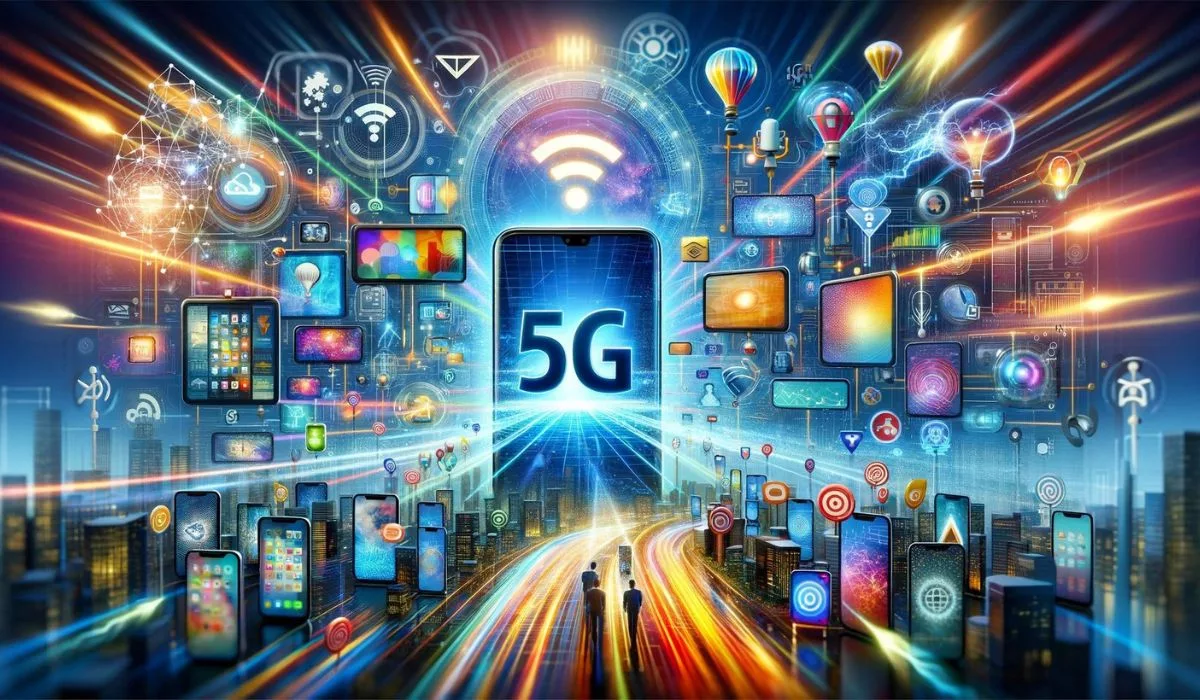5G technology has made a radical change in the mobile world, providing fresh chances for user-brand interactions. Its incredible speed, notably lower delay, and improved ability make 5G a big win for companies wanting to reach their audience in new ways. With an equally robust partner, such as the Trackier Mobile Marketing Platform, you can use the advantages of 5G to push your marketing plans to the next level. Unsure of the first step?
Read till the end.
What Is 5G Technology?
5G represents advancements offering higher speeds and improved connections. It greatly increases wireless speed and responsiveness, with transmission at multigigabit speeds up to 20 gigabits per second. 5G enables high video streaming quality, IoT device communication, location tracking, fixed wireless, low-latency communication, and real-time analytics. The full potential requires standalone 5G networks and devices, supporting augmented reality and virtual reality in real-time, live TV, and video calls. 5G transforms industries like mobile marketing by enhancing connectivity, services, and experiences.
Also read: Best Digital Marketing Companies in USA & UK
Impact of 5G On Mobile Marketing
5G deployment will hugely affect mobile marketing. As 5G reaches the common man’s hands, it presents a strong growth prospect for brands to tap into the vast and growing mobile user base, particularly in the OTT space. With more mobile video viewers, video advertising and marketing opportunities to a diverse mobile video viewership will go up. Considering the spread of 5G, mobile marketing strategies will have to adapt. They’ll need to concentrate on creativity, personalization, and real-time interactions to stand uniquely in a 5G-driven environment. Also, global smartphone market will likely see single-digit growth, largely influenced by 5G, creating further opportunities for mobile marketing and promotion.
Also read: Unveiling Uncommon Marketing Ideas and Strategies
Implications of 5G on Mobile Marketing
The emergence of 5G is set to influence mobile marketing, permitting quicker transfers, reduced lag, and sparking new experiences. Some effects of 5G on mobile marketing are:
- Better User Experiences: 5G promises steady, lag-free content streaming and powerful experiences.
- Custom Marketing: Live data investigation allows for custom content and deals, enhancing marketing scope.
- Better Customer Experience: The move to 5G triggers a shift towards mobile dependence, calling for better mobile user experiences.
- New Marketing Possibilities: Larger bandwidth promotes creative endeavours, allowing for real-time events, and mixed media interactions.
- Ad Impacts: 5G facilitates quicker load times, fresh ad formats, and improved targeting for more effective ad placement.
Also read: The Future of Digital Marketing: Top 5 Trends to Look at
Reshaping Consumer Behaviour With 5G Technology
The introduction of 5G technology can reshape consumer behavior in mobile marketing in the following ways:
- Faster speeds lead to instant access, altering consumer expectations for immediate information and services.
- High-quality streaming and AR/VR capabilities encourage engagement with interactive content, enhancing user experience.
- New services like AR shopping and real-time language translation may gain popularity.
- Faster speeds may prompt higher data usage, influencing media consumption habits.
- 5G enables more targeted and personalized marketing content based on precise location data.
- Lower latency enhances real-time customer support through chatbots and virtual assistants.
Real-World Cases of 5G Apps Impact on Mobile Marketing
Amidst the swift progress of technology, numerous mobile applications have swiftly embraced the remarkable features of 5G.
- Gaming Apps: Fortnite and PUBG gain a lot from 5G’s very fast speed and low delay, giving players smooth, real-time gaming events.
- Streaming Services: Netflix and YouTube use 5G’s fast internet to stream in high quality without interruptive buffering. This greatly improves what, when and how people consumer video content.
- Healthcare Applications: Telemedicine apps use 5G’s fast speed to allow real-time doctor meetings, watching patients from far away, and even facilitating surgeries done remotely.
5G Integrated Companies And Their Mobile Marketing Strategies
- Samsung: Samsung pioneers in releasing 5G-ready smartphones. Both the leading Galaxy S and Galaxy Note series boast 5G versions. They use 5G network’s swift data rates and minimal delay to offer speedy web access. Additionally, they showcases Samsung’s dedication to advanced tech.
- Nike: Nike always leads in crafting connected shopping experiences. They use tools like augmented reality (AR) and the Internet of Things (IoT). The dawn of 5G opens doors for smoother and more engaging experiences in Nike’s stores. This might include interactive showcases, AR fitting experiences, and live product info, all sped up by the fast, delay-free powers of 5G.
- Snapchat: Snapchat led the way in adopting augmented reality (AR) on their site. As 5G tech came around, they set their sights on boosting AR capabilities. They rolled out AR ads improved by 5G. The ads created a more participative and instant ad experience, making them more captivating for users.
Also read: Outsourcing Marketing for Small Business: An Introductory Guide
Final Words
To sum it up, 5G tech is about to change mobile marketing as we see it. It’s going to make advertising faster and more immersive, opening doors for real-time, personal interactions. Various businesses are already using the strengths of 5G, with many others joining in line. As they do, unique mobile marketing opportunities are bound to show up for consumers, and brands alike.










Leave a Reply